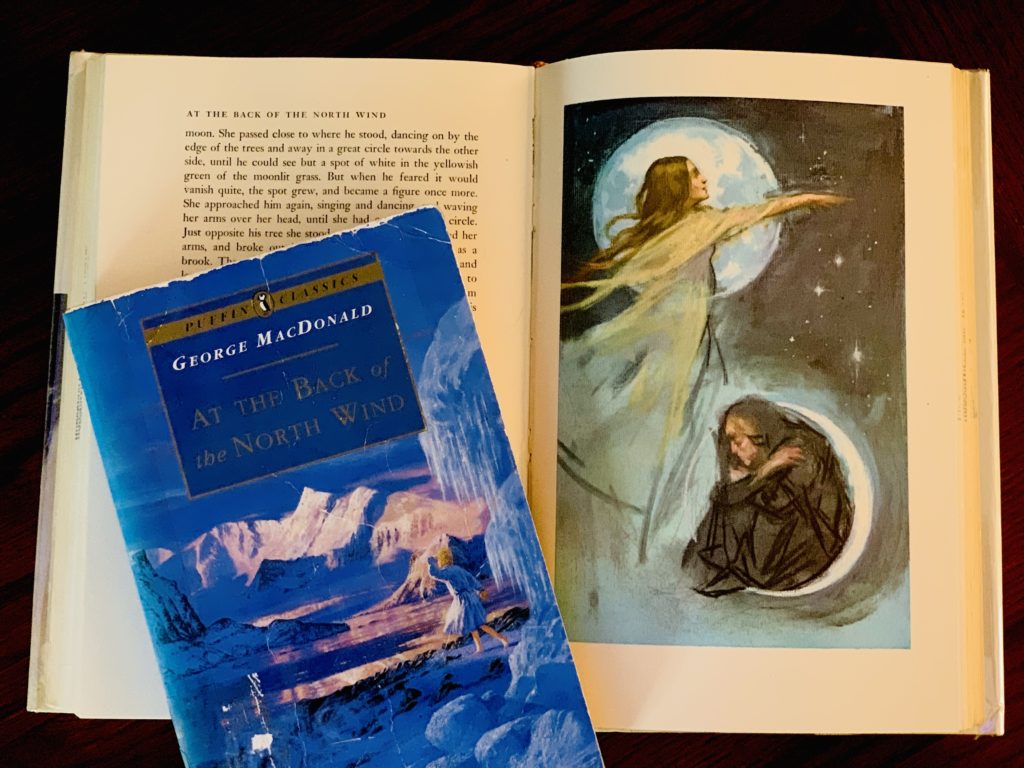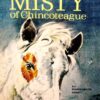At The Back of the North Wind

This Victorian fairy tale has enchanted readers for more than a hundred years, and combines a Dickensian regard for the working class of mid-19th-century England with the invention of an ethereal landscape.
—This from a professor of literature at Cambridge. “I felt like I had experienced a holy moment when I finished the very last sentence of the last chapter—though I wonder if later my words here will seem surfeit. But I know they can’t, because, as Diamond and the North Wind explain in the latter portion of the book: whether the dream is true or not, the thing it has done and the thing it stands for is true; and if the thing is true, mightn’t we also say that the dream is “true”?’
George MacDonald was a Scottish author, poet and Christian minister. He was a pioneering figure in the field of modern fantasy literature and the mentor of fellow writer Lewis Carroll. In addition to his fairy tales, MacDonald wrote several works of Christian theology, including several collections of sermons.
C. S. Lewis wrote that he regarded MacDonald as his “master”: “Picking up a copy of Phantastes one day at a train-station bookstall, I began to read. A few hours later”, said Lewis, “I knew that I had crossed a great frontier.” The Christian author Oswald Chambers wrote in his “Christian Disciplines” that “it is a striking indication of the trend and shallowness of the modern reading public that George MacDonald’s books have been so neglected” Others he influenced include J. R. R. Tolkien and Madeleine L’Engle.
What endeared me to the author was learning this: MacDonald was appointed minister of Trinity Congregational Church, Arundel, in 1850, after briefly serving as a locum minister in Ireland. However, his sermons—which preached God’s universal love and that everyone was capable of redemption —met with little favour and his salary was cut in half. He resigned a short time later. His father George, Sr., rejected the extreme points of both Calvinism and Arminianism and hated to see the gospel mystery torn “to pieces by those who believe there is no mystery in the Scriptures and therefore attempt to explain away what is evidently for the hour of God to conceal.”
Fascinating things unearthed when reading children’s classical literature.
I cannot wait to read this!


